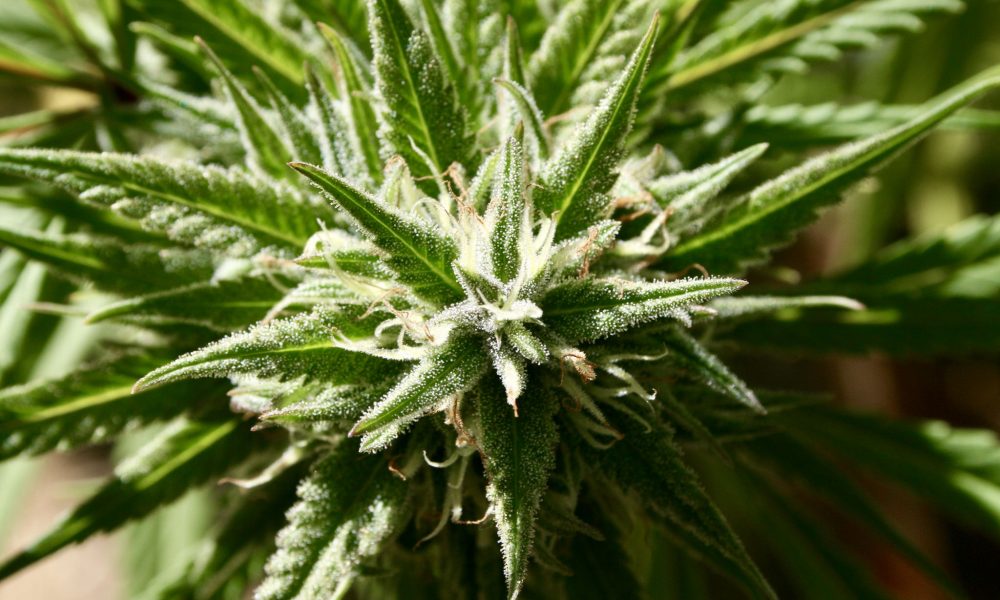Bipartisan congressional lawmakers are urging House appropriators to ensure that a large-scale spending bill maintains language to allow U.S. Department of Veterans Affairs (VA) doctors to issue medical marijuana recommendations to veterans living in legal states.
In a letter sent to to House Appropriations Committee leadership on Friday that was led by Congressional Cannabis Caucus co-chairs Reps. Earl Blumenauer (D-OR) and Brian Mast (R-FL), four members requested that leadership “maintain the protections” as part of the final 2024 Military Construction, Veterans Affairs, and Related Agencies (MilConVA) spending bill that’s sent to the president’s desk following bicameral negotiations.
Both the House and Senate included provisions in their respective MilConVA measures earlier this year that would permit VA doctors to make the medical cannabis recommendations, but the exact language differs. Blumenauer and Mast are asking the committee leaders to advocate for the adoption of the Senate version that Sen. Jeff Merkley (D-OR) secured as part of his chamber’s bill.
That could help avoid a similar situation that played out in 2016, with both chambers including differing versions of the VA marijuana amendment in their appropriations bills, only to have the issue completely stripped out of the final deal that was signed into law.
“Thirty-eight states, the District of Columbia, and four U.S. territories have passed laws that provide for legal access to medical marijuana products,” the letter, which was shared with Marijuana Moment on Friday, says. “As a result, more than three million patients across the country, including many veterans, now use medical marijuana at the recommendation of their physician to treat conditions ranging from seizures, glaucoma, anxiety, chronic pain, nausea, and posttraumatic stress disorder (PTSD).”
“Despite this growing state availability of medical marijuana, the VA prohibits its medical providers from completing forms brought by their patients seeking recommendations or opinions regarding participation in a state medical marijuana program,” the letter says. “The House and Senate bills both included critical language to restrict the use of funds for this harmful prohibition on providers and veterans.”
Here’s the section that the lawmakers want to see included in the final MilConVA bill:
Sec. 260. None of the funds appropriated or otherwise made available to the Department of Veterans Affairs in this Act may be used in a manner that would—
(1) interfere with the ability of a veteran to participate in a medicinal marijuana program approved by a State;
(2) deny any services from the Department to a veteran who is participating in such a program; or
(3) limit or interfere with the ability of a health care provider of the Department to make appropriate recommendations, fill out forms, or take steps to comply with such a program.
“Veterans should not be forced outside the VA system to seek a treatment that is legal in their state,” the letter to appropriators concludes. “VA physicians should not be denied the ability to offer a recommendation that they think may meet the needs of their patients.”
The other signatories on the letter were Reps. Dina Titus (D-NV) and Lori Chavez-DeRemer (R-OR).
The defense bill reform would achieve the same policy outcome as a standalone bill that was refiled on the House side by Blumenauer and Mast.
The Veterans Equal Access Act has been introduced several times in recent years with bipartisan support—and moved through committee and floor approval a number of times—but has yet to be enacted. Blumenauer, who is retiring at the end of this Congress, has made the modest reform a priority even as he’s pushed for broader legalization.
—
Marijuana Moment is tracking more than 1,000 cannabis, psychedelics and drug policy bills in state legislatures and Congress this year. Patreon supporters pledging at least $25/month get access to our interactive maps, charts and hearing calendar so they don’t miss any developments.
Learn more about our marijuana bill tracker and become a supporter on Patreon to get access.
—
In August, bipartisan congressional lawmakers expressed “deep concern” over the recently updated VA marijuana directive that continues to prohibit its doctors from making medical cannabis recommendations to veterans living in states where it’s legal.
They said the decision to maintain the “harmful policy” on cannabis recommendations is especially “alarming” in the context of VA’s latest clinical guidance on PTSD, which strongly recommends against using medical cannabis as a treatment option.
“Many veterans already report using cannabis for medical purposes as a substitute for prescription drugs and their side effects,” they said, adding that a recent survey of veterans who use cannabis found that they report improved quality of life and reduced use of certain prescription drugs, including opioids.
VA has updated its cannabis guidance before, adding language in its 2017 version that explicitly encouraged VA doctors to discuss veterans’ marijuana use, for example.
In April, Senate Republicans separately blocked a procedural vote to advance a bill to the floor that would promote VA research into the therapeutic effects of marijuana for military veterans with conditions such as post-traumatic stress disorder (PTSD).
The medical cannabis recommendations amendment was one of relatively few drug policy reform measures to make it through the GOP-controlled House Rules Committee, which has consistently blocked such proposals from bipartisan members this session.
However, it did advance a Republican-led amendment to the National Defense Authorization Act (NDAA) that would require Department of Defense (DOD) funding of clinical trials exploring the therapeutic potential of certain psychedelics for active duty military service members. Following bicameral negotiations, the reform was ultimately included in the final deal that was sent to President Joe Biden’s desk this week.
Read the bipartisan letter to House appropriators on VA doctor medical marijuana protections below:
DEA Renews Push To Ban Two Psychedelics After Abandoning Effort Last Year, Prompting Researchers To Fight Back Again
Photo courtesy of Brian Shamblen.
Read the full article here









